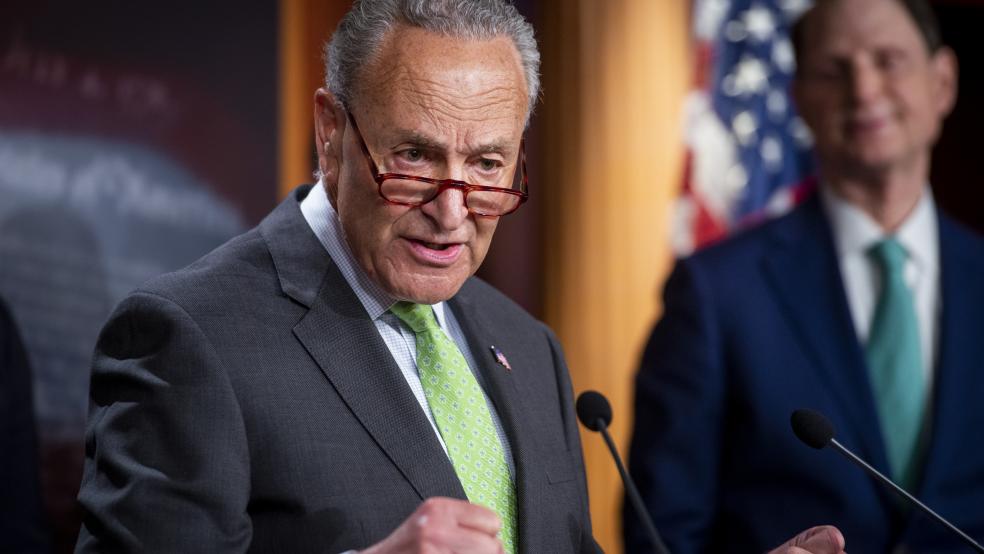The $1 trillion bipartisan infrastructure bill is on track toward final passage this week after the Senate voted 68-29 Sunday night to end debate on the package.
“It may have taken all weekend, but the Senate is now finally on the precipice of passing major bipartisan infrastructure legislation,” Schumer said on the Senate floor Monday morning, adding that Sunday night’s vote “put the bill on a glide path for passage tomorrow morning.”
The final vote on the Infrastructure Investment and Jobs Act could come in the wee hours of Tuesday morning, after 30 hours of required debate.
Some Republicans raise deficit concerns: Sen. Bill Hagerty (R-TN) has refused to agree to speed the process largely because of objections to how the new spending is — or rather isn’t — paid for. The Congressional Budget Office said last week that the legislation would add $256 billion to deficits over the coming decade, though negotiators had argued that the costs would be fully covered. (The Committee for a Responsible Federal Budget says that the legislation could ultimately add nearly $400 billion to deficits.) The negotiators have said that some of their financing measures, including repurposing Covid-19 relief funds, wouldn’t count the same in CBO’s official scoring.
Other Republicans who had supported the bipartisan bill cited the CBO score in announcing that they would vote against final passage. "As I've said many times, while I'm eager for a bill that makes these investments, I'm also committed to doing so in a fiscally responsible way," Sen. Todd Young of Indiana said in a statement. “Having reviewed the Congressional Budget Office’s (CBO) estimated fiscal impact of this legislation as currently constructed, and frankly still not being comfortable with a number of the Democratic priorities contained in this version, I will vote ‘no.’”
Sen. Jerry Moran of Kansas also said the CBO score — and Democrats’ plans for their own spending bill — made him a ‘no’ on the bipartisan bill. “My top priority was the bill must be paid for and, therefore, not raise the national debt,” he said Monday.
Other lawmakers have shrugged off the CBO score, and the bill is expected to pass rather easily. Those developments, Jonathan Weisman and Alan Rappeport write in The New York Times, “marked a new moment in the post-Trump era, one that highlighted how deficits matter only situationally to Republicans and inflation fears ebb and flow, depending on the politics of the issue.”
Crypto deal blocked: Senators reportedly still hope to secure an agreement on a more acceptable vote time and, potentially, on additional amendments to the package. But a bipartisan agreement on changes to the cryptocurrency reporting requirements in the bill — a key revenue-raiser that was the subject of some late disagreements and dueling amendments — was blocked on Monday. “The upshot is the Senate is likely to approve infrastructure legislation with the original cryptocurrency provisions intact, despite the compromise winning support from across the political spectrum,” Politico’s Brian Faler reports.
What’s ahead: Once it’s passed by the Senate, the infrastructure bill will head to the House, where its outlook is clouded by differences among Democratic moderates and progressives over the $3.5 trillion budget reconciliation package.
House Speaker Nancy Pelosi (D-CA) has insisted that she won’t bring up the bipartisan bill for consideration until Senate Democrats pass the reconciliation package, and House progressives have said that they won’t back the bipartisan bill without the larger, partisan one. Some moderate Democrats, meanwhile, continue to call for Pelosi to allow a vote on the bipartisan deal.
Budget
Bipartisan Infrastructure Bill Chugs Along Toward Final Senate Passage

Rod Lamkey/CNP/Sipa USA




